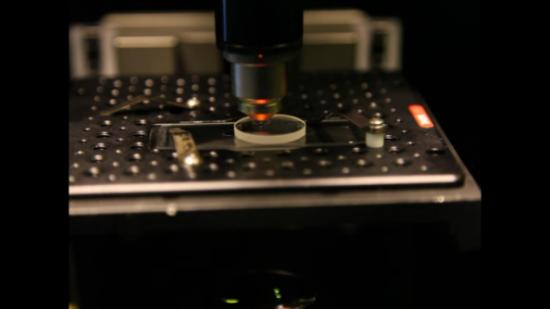Anyone who just bought a new SSD and is feeling particularly good about it might want to look away now. Researchers at the University of Southampton, UK, have devised a nanostructured data solution on glass that can keep up to 360TB of data for… well, longer than the universe has been in existence thus far: 13.8 billion years.
La la la, I can’t hear you, fearsomely advanced scientific process – block out the sound of your rapidly approaching irrelevance with our best PC gaming headsets.
While the first impulse of a PC gamer reading this is to imagine what kind of performance benefit it could yield in your rig, the implications of the 5D external data storage technique that these researchers have developed is a bit more profound.
“It is thrilling to think that we have created the technology to preserve documents and information and store it in space for future generations,” says professor Peter Kazansky of the university’s optoelectronics research centre. “This technology can secure the last evidence of our civilisation: all we’ve learnt will not be forgotten.”
The technique involves femtosecond laser writing – which means data is written in one quadrillionth of a second – onto three layers of the glass, five microns apart from each other. This nanostructured glass changes the way light passes though it, and those changes can be interpreted as data by a polariser and an optical microscope.
The glass can withstand temperatures of up to 1000 degrees celcius, and if kept below 190 degrees celcius it can endure for around 13.8 billion years, its creators say. For reference: the big bang was somewhere between 13.6 and 13.8 billion years ago.
“Now, major documents from human history such as Universal Declaration of Human Rights (UDHR), Newton’s Opticks, Magna Carta and Kings James Bible, have been saved as digital copies that could survive the human race,” reads the University of Southampton’s announcement.
If there’s also some room on there to put my Baldur’s Gate II: Throne of Bhaal save from 2001 that I never got round to finishing, that’d be nice.
Thanks, PC Gamer.
